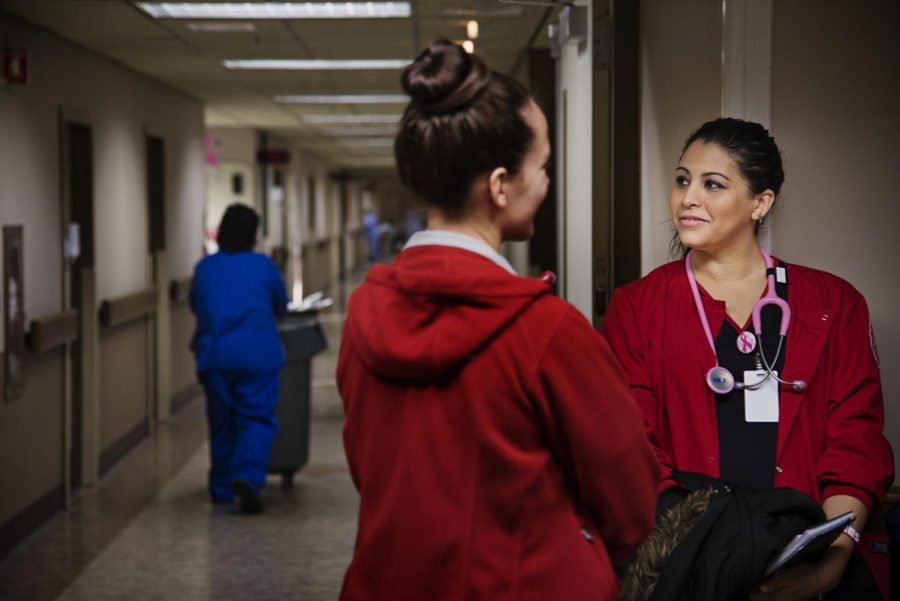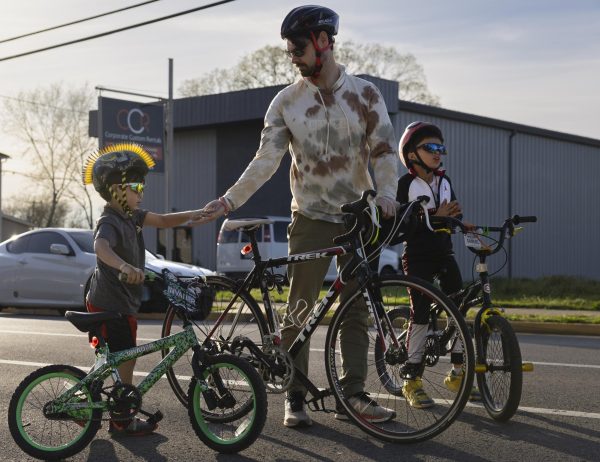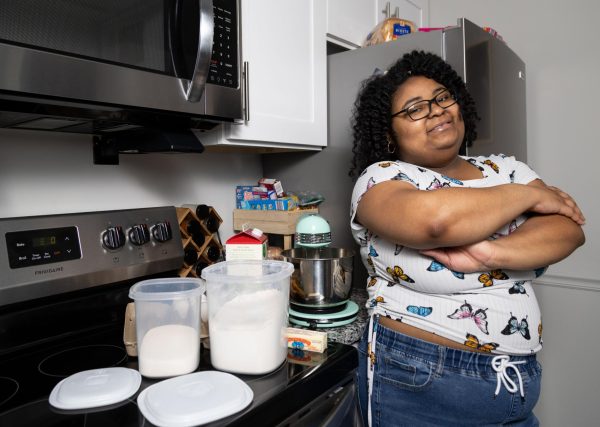In My Skin: Non-traditional student strives for degree
February 20, 2014
In My Skin is a weekly feature series that looks to tell the stories of diverse student populations at WKU. Its goal is to serve as a simple reminder that WKU is location of diversity.
*****
It had been over a decade since Barbara Morrow last found herself in a classroom. As she surveyed her surroundings back then, she noticed one student too infatuated by another to pay attention to the professor, and became the subject of unwanted attention herself in another classroom.
For Morrow, a 32-year-old junior, being in class with younger, traditional students in her general education courses proved to be “aggravating” at times.
“I was there for a purpose,” Morrow said. “I wanted to get in, get through my classes and be done, but a lot of the younger ones just liked to mess around.”
Motherhood put the thought of college on hold for Morrow in her senior year of high school.
“I had my first daughter three months before graduation,” Morrow said.
Morrow, who is in her second semester in the nursing program at WKU, said she knew it was just “the right time” to go back to school in fall 2011.
“All of my kids were in school, so it was time for mommy to go to school,” Morrow said.
“Plus, I had stayed home with them until they started school, so I knew I’d need something to do with that time.”
Morrow said the maturity levels of students changed whenever she got into the nursing program.
“Being there where everybody has a purpose makes it a lot different,” she said.
Morrow said she’s thankful that her husband and parents help her financially so she doesn’t have to maintain a job on top of being a full-time mother and student.
“I know people who work full-time jobs, have kids at home, and they’re full-time students,” Morrow said. “I don’t understand how they do it because I’m barely making it through with my sanity as it is.”
Morrow is a member of Women in Transition, a group for non-traditional female students.
“A lot of the women in there are nursing students, so they’ve been a lot of help,” Morrow said. “When I was doing my prerequisites, they’d be there studying so it gave me a heads-up on what to expect.”
Morrow said a lot of the women in WIT have helped by giving her a shoulder to cry on or an ear to listen.
“There was a lady there when I first joined WIT who was a nursing student and a mother,” Morrow said. “I saw her today at my clinicals, and we just sat and talked for a while. I wouldn’t have that friend if it weren’t for WIT.”
Jennifer Howard, WIT advisor, said Morrow is a very active member and has shown tremendous strength in her studies while managing all of her other responsibilities at home.
Bonnie MacPherson, a 76-year-old junior and fellow member of WIT, said she enjoys the camaraderie of students that WIT provides.
“It gives non-traditional female students the opportunity to meet with their peers,” MacPherson said. “You meet people in the same situation and know you’re not in this by yourself, which is very important.”
Morrow said the highlight of going back to school later in life is having a purpose.
“If I hadn’t had my daughter and had gone straight to school, I would have been one of those kids that aggravated me in my gen-ed classes,” Morrow said.
However, Morrow said the downfall of going to college later in life is not getting to “enjoy college for college.”
“Everyone says that college is supposed to be the best four years of your life,” Morrow said. “It’s not really like that when you’ve got three kids at home. I don’t get to go party, and I never got to experience that, but it’s worth it because I was able to stay home with my babies.”
Morrow said she hopes to become a student worker at the Medical Center within the following semesters and have a position there after she graduates. She also hopes to pass the NCLEX, a state test that must be passed in order to be licensed as a registered nurse.
MacPherson said she encourages any senior citizen to take a stab at going back to school.
“Maybe not carrying a full course load or pursuing a degree, but they could at least get a feeling for what school is like nowadays as compared to when they graduated high school,” MacPherson said. “It’s important to keep your mind active — for your physical, emotional and mental well-being.”
MacPherson said Kentucky has a scholarship program for which tuition is paid for anyone desiring to go back to school after the age of 65.
“The expense of tuition isn’t a valid excuse to not do it,” MacPherson said.
Morrow said she encourages college students not to give up, no matter what happens.
“I had to retake my first semester of nursing because I missed the grade point by a small amount,” Morrow said. “That was a big ego bust.”
“Do it for yourself — not anybody else,” Morrow said.

























